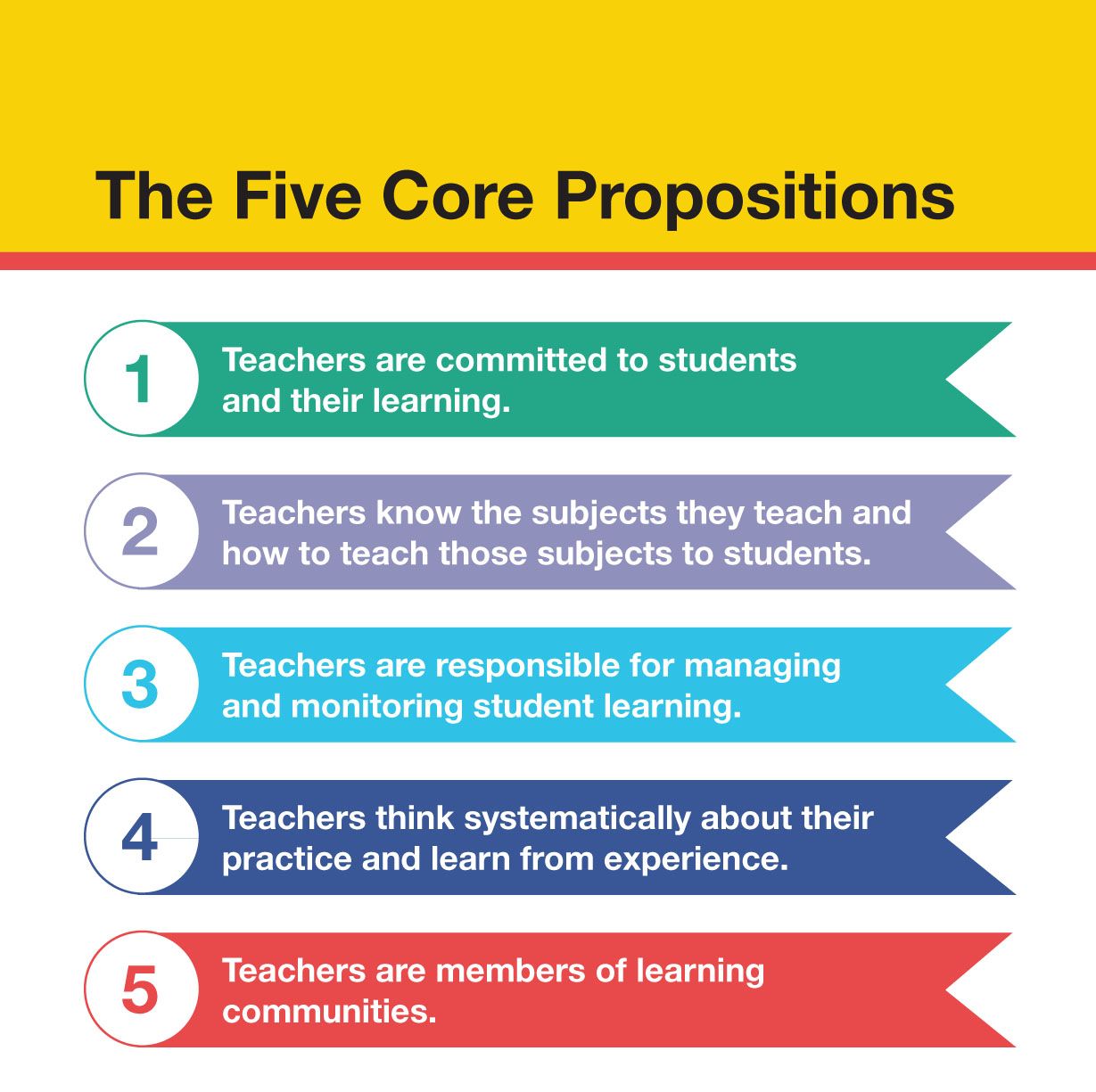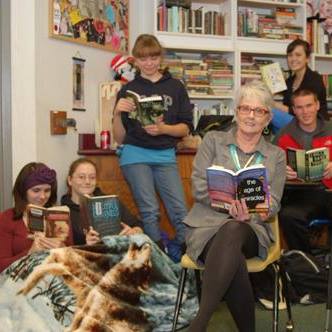This post originally appeared on Claudia Swisher’s blog.
I love students… I’ve often told my classes that my mission in life is to show the world how brilliant they are. I saw this brilliance on display last week, and I was reminded of the humble joy it is to spend time with young people in the classroom.
"Every student deserves an accomplished teacher." That statement reflects on the bedrock values of the National Board for Professional Teaching Standards, and the Five Core Propositions of accomplished teaching. Everything starts with these Core Propositions.
- Teachers are committed to their students.
- Teachers know their subjects, and how to teach those subjects to students.
- Teachers manage and monitor student learning.
- Teachers think systematically about their practice and learn from experience.
- Teachers are members of learning communities.
I am a proud National Board Certified Teacher and I see life through the lens of the Propositions. So, it wasn’t a surprise that I found them in a recent panel discussion.
I participated in the EngageOK Conference, the traveling summer professional development hosted by the Oklahoma State Department of Education. I attended the meeting held in Norman — at my old school, Norman North High School. One presentation was a student panel, moderated by Superintendent Joy Hofmeister. At North, the students were from big schools and small, and had a variety of experiences in school. They were brilliant, just as my students had been. The questions were thoughtful, and the answers were eloquent.
I was sitting with my Oklahoma House Representative, Jacob Rosecrants, a former teacher, and even earlier, a former student in my English 1 class. We both agreed this group of students made us deeply miss being in the classroom.

As they answered questions, I became aware of how the students’ answers reflected the Five Core Propositions. When asked what makes an exceptional teacher, and what advice they’d give to new teachers, they used examples that could be organized under four of the five Propositions. The only Proposition that students did not articulate was the one they would probably never see in the classroom, Proposition 5: Teachers are members of learning communities, but I could make a strong case for their creation of a learning community. The space and time students are with teachers in the classrooms…that’s a learning community.
Without knowing anything about the Propositions, students could and did articulate descriptions of them in their answers. They said more, but these are the responses that spoke to me and the Core Propositions.
How would you describe an exceptional teacher?
Core Proposition 1 — Teachers are committed to their students
- Helps us engage
- Sets the climate
- Is understanding
- Has unfailing respect
- Brings me into the school
- Asks me how I am
- Invests in students
- Says we’re in this together
- Expands our vision of what we can be and do in the future
Core Proposition 2 — Teachers know their subjects and how to teach those subject…
- Engages us in the subject, not just teaches for the next test
- Cares about what they’re teaching
- Connects the class to our lives
- Takes something they’re passionate about and uses it to help us learn
- Shares how their subject connects to our future.
- Boring teachers don’t connect their subject to us
Core Proposition 3 — Teachers manage and monitor student learning
- Adds physical activity when we’re tired and distracted
- Keeps us off our cell phones
- Uses voice tone and pitch to hold our interest
- Moves around the room to keep us on task
- Has consistent procedures
What advice do you have for new teachers?
Core Proposition 4 — Teachers think systematically about their practice and learn from experience:
- Show us you’re learning too
- Build to be that veteran teacher
- Know you won’t be perfect all the time
- Don’t try to please everyone
Representative Rosecrants asked the students to speak to us about the effects of class size…and here, also, I heard them talk about the first three Core Propositions…
- It’s hard for teachers to invest in 40 kids in one room (1)
- Small classes let teachers know me (1)
- In small classes, there are more opportunities for attention and participation (1, 2)
- Small classes let teachers individualize the curriculum (2)
- Small classes let teachers give more and better explanations of the material (2, 3)
- Teachers can see what kids need and give us that in small classes (2, 3)
One student said, and I agree, "Teachers deserve smaller classes." I’d add, "STUDENTS deserve smaller classes."
 Students watch teachers all day long. They understand more than we know. They know what works and what doesn’t. Without even knowing there are these Five Core Propositions, they can describe what four of the five look like in the classroom, and know teachers who live these Propositions are more effective…are exceptional. They want to help new teachers learn and develop into exceptional teachers.
Students watch teachers all day long. They understand more than we know. They know what works and what doesn’t. Without even knowing there are these Five Core Propositions, they can describe what four of the five look like in the classroom, and know teachers who live these Propositions are more effective…are exceptional. They want to help new teachers learn and develop into exceptional teachers.
Students deserve accomplished teachers.
Teachers deserve the opportunity to pursue National Board Certification, and to be rewarded for measuring their practice against the highest voluntary standards in our profession.
If you’re interested in finding out more about the program in #oklaed, ask me! I love to talk about this transformative learning experience.
